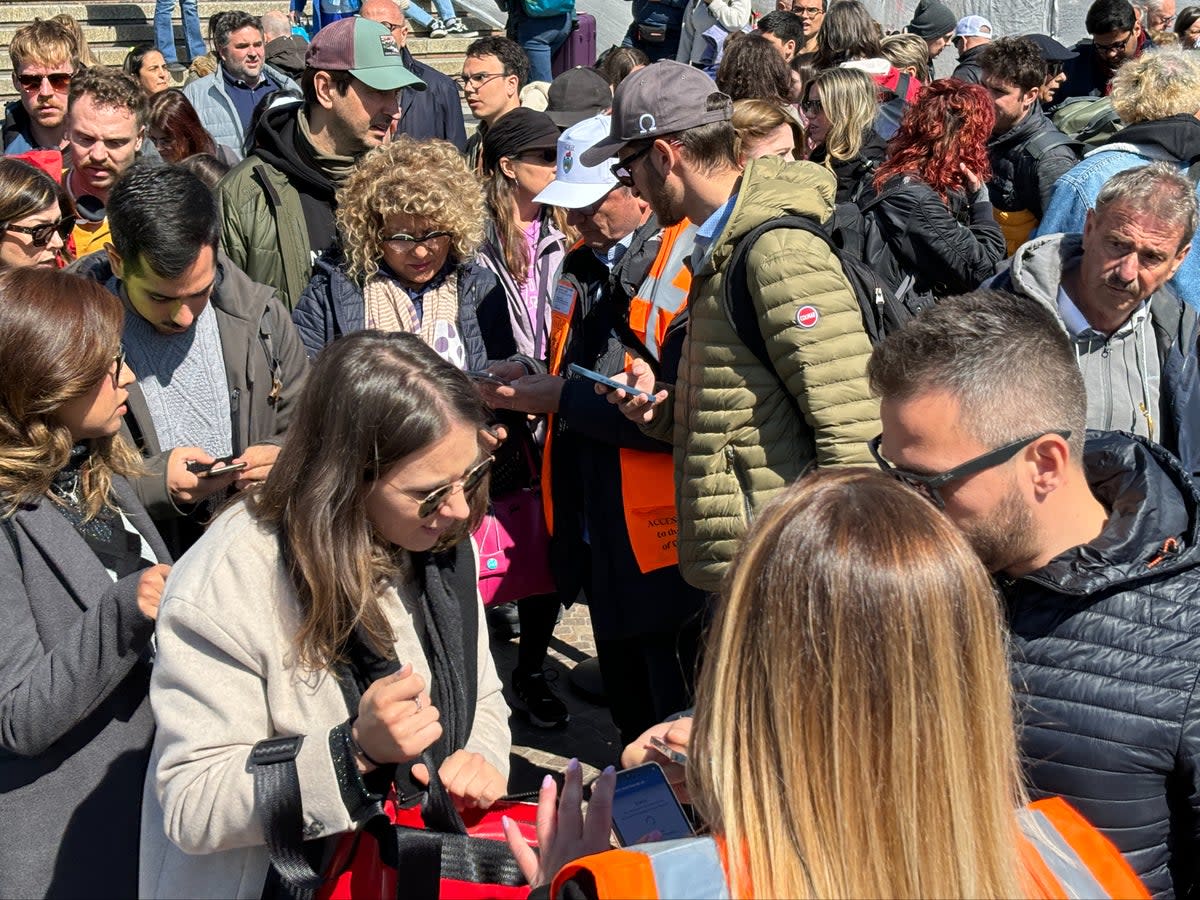Venice entry fee labelled ‘total failure’ with tourists still flowing into the city

Venice’s new tourist tax scheme has been called a “total failure” in the Italian city’s battle against overtourism.
On 25 April, the €5 (£4.26) charge to enter the historic centre of Venice started a 29-day trial to control visitor numbers on busy days until mid-July.
Nearly a month on, city councillors questioned the purpose of the ticketing system and claimed visitor numbers to the Italian city are instead on the rise compared to the same period in previous years.
Opposition councillor Giovanni Andrea Martini, architect Franco Migliorini and Enrico Tonolo, the head of a Venice residents’ association, spoke against the scheme at a Municipal Council Group of Venice press conference in Rome on Monday.
Mr Martini called the access fee a “grand bluff, artfully created to generate media buzz, which does not solve the problem of overtourism in Venice” and said the fee was “introduced solely to generate revenue”.
“A month after the introduction of the ticket, the data shows that the contribution has been useless, so much so that even the municipal administration has had to admit that the revenue from the €5 payments has far exceeded expectations, meaning more tourists have arrived,” he said in a statement.
The Italian city has 49,000 permanent residents and receives over 80,000 tourists per day, “a total failure in flow control” according to the panel.
“Venice suffers from social desertification. There are whole districts that have been emptied of Venetians. If this trend continues then it is a mathematical certainty that the city will die,” said Mr Martini.
Simone Venturini, the councillor responsible for tourism, defended the scheme, according to The Times.
“We are not going to curb tourism in 15 days,” he said. “This is a long-term project and we may increase the price next year so it is too soon to talk about results.
“The people opposing this are from the left — the same people who opposed Venice’s Mose flood barrier and offered no solutions for countering tourism when the left was in charge of the city.”
Critics also raised concerns about the safety of declaring personal data, including the reason for visiting a residence, medical visits and friends invited for lunch when registering movement in Venice’s historic centre.
Mr Tonolo called the entrance fee system a violation of privacy for residents that has done nothing to reduce tourist footfall in the popular area.
“Despite being a Venetian citizen, I have to ask permission to invite friends, as though I was a subject appealing to my sovereign,” he said.
Speakers at the conference also accused the system of being a ploy to exclude Venice from being included on the Unesco “black list” of endangered cities.
According to a survey by Demetra, an opinion survey group, 89 per cent of residents in the historic centre do not think that the introduction of the access ticket will reduce the problem of excess tourism in Venice.
The city councillor instead proposed a “serious regulation” of tourist accommodation to bring back the availability of rentals for residents and called for a cap on daytripper numbers to just 50,000.
Overnight visitors are currently exempt after they register online as the city tax is included in the accommodation charges of hotels and Airbnb rentals.
Mr Migliorini stressed the need to “regulate the number of tourist apartments” to combat the unmanageable level of tourism in Venice.


